10 facts about Japan that you may not have known
Categories: Asia
By Pictolic https://pictolic.com/article/10-facts-about-japan-that-you-may-not-have-known.htmlJapan is a beautiful and amazing country, but many people know very little about it and its culture. And there is something to tell about it.


It is perfectly normal to eat raw horse meat in Japan
Many of us cringe at the thought of eating horse meat, especially raw and cold. But in Japan, raw horse meat, also called basashi, is considered a delicacy and is served in many restaurants. This is not a newfangled fad-the Japanese have been eating raw horse meat for many decades.
Basashi is much healthier than pork and beef, and it is much more difficult to catch E. coli from it. Horse meat contains a lot of protein and linoleic acid, but it is low in calories. In addition, horse meat may be able to prolong life. Demographic data published in 2013 showed that people from Nagano Prefecture live the longest in Japan: the average life expectancy is 80.88 years for men and 87.18 for women. Their secret is that they eat horse meat.
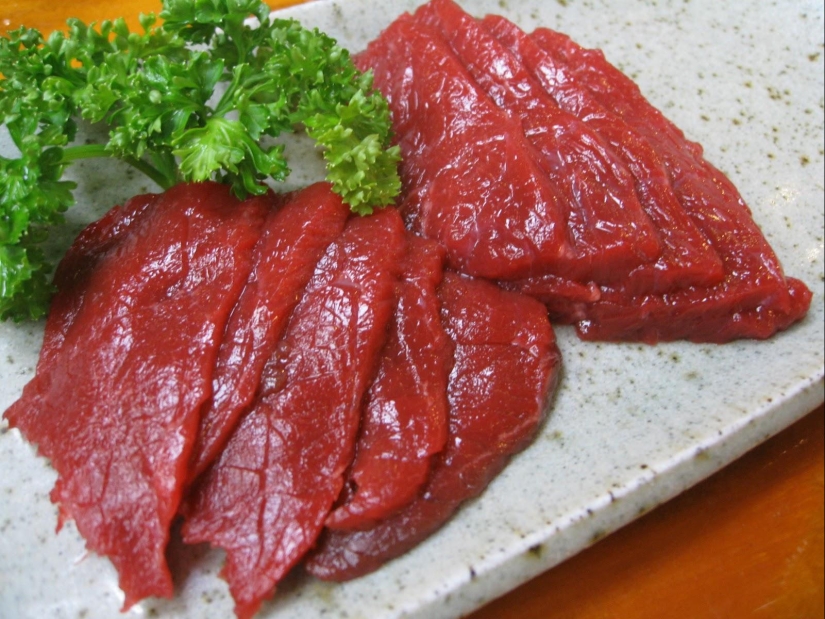
1500 earthquakes per year
Japan is a very beautiful, but at the same time a very dangerous country. Not because of the high crime rate, by no means: judging by this indicator, it is one of the safest countries in the world. The fact is that this is one of the most earthquake-prone areas in the world.
Japan experiences 1,500 earthquakes a year. Fortunately, most of them are just weak tremors, but there are also terrible destructive earthquakes here. In the past, this has led to the death of thousands of people and damage worth billions of dollars.
The main factor is the geographical location of Japan: the country is located at the junction of four massive tectonic plates, and when the plates move, an earthquake occurs. In 2011, the plates suddenly began to move extremely actively, which led to a catastrophe.
That earthquake, called Tohoku, is considered the strongest and most destructive earthquake in the history of Japan — its magnitude was 9.0 points. Despite this, Tohoku was still not the deadliest earthquake: in 1923, the Great Kanto Earthquake with a magnitude of "only" 7.9 points claimed the lives of 142,800 Japanese residents.
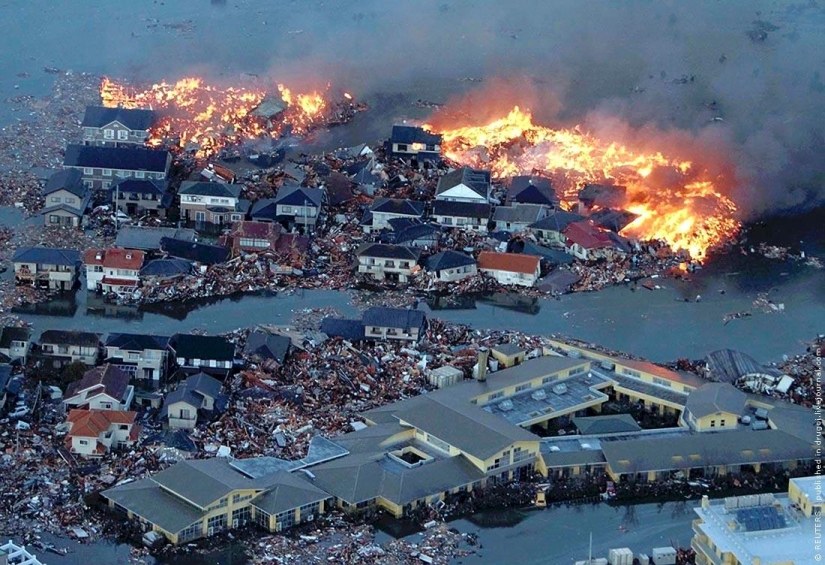
Japan is a country of vending machines
The Japanese love vending machines — there are about 5520 different copies scattered throughout the country. Over the years, these machines have improved significantly, some of them are very convenient, others are extremely strange.
In most countries, vending machines usually sell snacks: chips, sweets, carbonated drinks. But the Japanese combine the practicality of vending machines with their love of innovation and everything unusual.
In Japan, it is perfectly normal to buy fresh eggs, bags of rice, bouquets of fresh flowers, toilet paper, condoms, umbrellas, live fish, porn magazines — everything that you can imagine. Unusual, but very convenient at the same time.
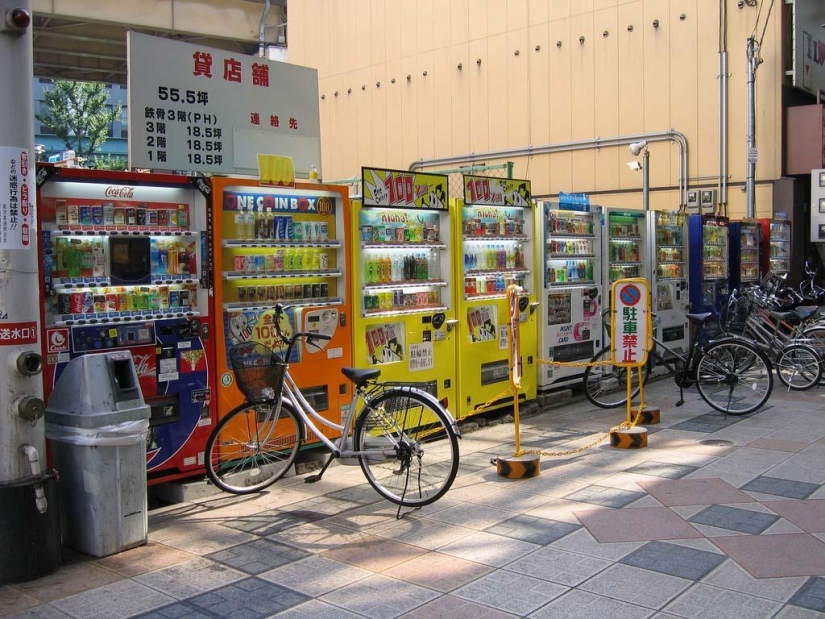
In Japan, it is perfectly normal to slurp when eating noodles or soup
In the Western world, it is customary to eat without making any unnecessary sounds — slurping or slurping is considered unnecessary and rude. But in Japan, everything is quite the opposite — slurping is completely normal and acceptable even in public. And even highly recommended.
When Japanese people eat hot soup or noodles, they smack, slurp, slurp and behave, from the point of view of a Western person, like pigs. Why? Such behavior in Japan is considered as a sign of appreciation and approval. This means that you like soup or noodles so much that you want to stuff as much as possible into your mouth at any cost. In other words, this behavior is a compliment to the cook for a job well done.
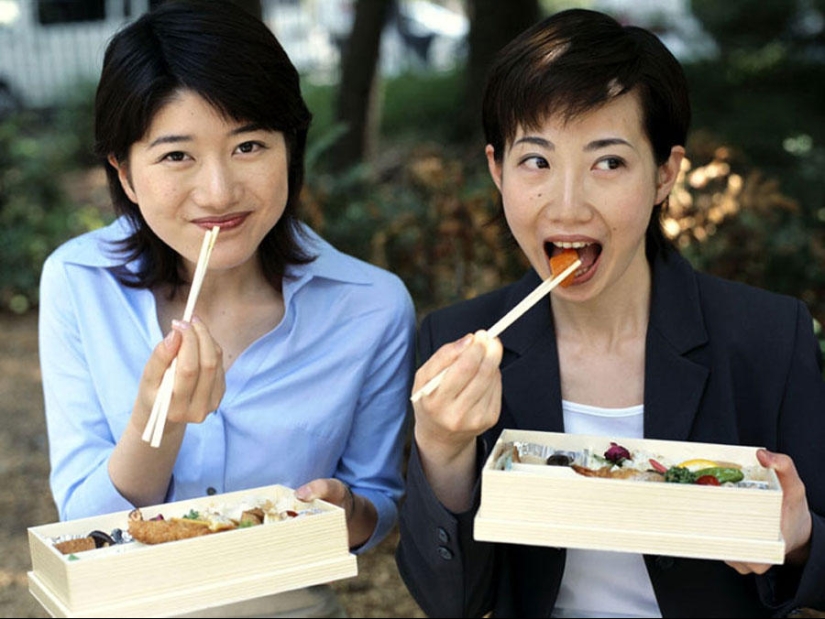
The national sport in Japan is sumo, and the most favorite and popular is baseball, which is otherwise called yakiu. It was brought to Japan by an American athlete named Horace Wilson: in 1873, the first baseball game was held at the University of Tokyo under the guidance of Mr. Wilson, and since then yakiu has become the most beloved team sport in Japan.
There are two professional baseball leagues in Japan: Pacific and Central. Baseball is also played in high schools and universities across the country. Games with the participation of school teams are often watched on TV with pleasure — such amateur games are often broadcast on national television.

Japan has a very high suicide rate
Japan, as we have already said, is a rich country with an interesting history and a vibrant culture. She's beautiful. It is the home of a modern, disciplined, hardworking and in all respects successful nation. But not everything is so rosy: Japan has a very high suicide rate. Every year, more than 30,000 men and women take their own lives: it is estimated that 24.4 people out of 100,000 Japanese citizens are very likely to commit suicide.
Suicide has become a serious problem in Japan: in fact, it is the main cause of death for women aged 15 to 34 years and men aged 20 to 44 years.
Why is this happening in a wealthy, highly developed country? Apparently, there is a big problem with unemployment in Japan. If you suddenly can't keep your job, then many former employees take their own lives. The saddest thing is that most often because of problems with work, young people commit suicide, many are recent graduates of universities. Other causes of suicide among Japanese people are depression and financial difficulties.
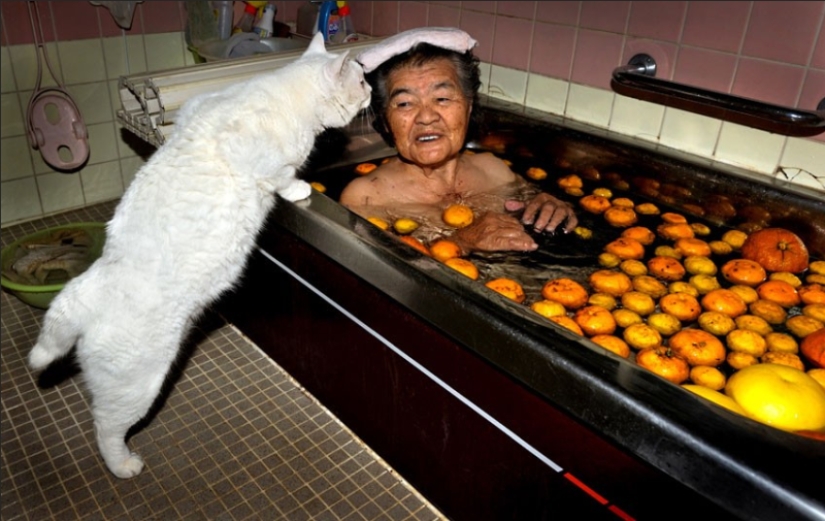
The whole family uses the same water for bathing in Japan
For the Japanese, a bath is not only a way to wash away dirt from the body, it is also an effective way to relax the mind, body and spirit. Therefore, many Japanese people take a hot bath in the evenings and regularly go to hot springs. Unlike in the Western world, members of the same Japanese family use the same water for bathing. But they do not take a bath at the same time: the father washes first, followed by the mother, and then the children.
There is a bath in almost every Japanese house, but the Japanese use it more for relaxation than for washing. Of course, the Japanese monitor hygiene very carefully, but they do not wash in the bath itself, but in a basin next to it. And after they have thoroughly washed and washed off all the soap and dirt, they fall apart in the bath and rest.
Since they are washed in other water, the hot water remains clean and transparent, and other family members can use it. It is interesting that if there is a guest in the house, then it is he who is given the honor to lie in a hot bath first.
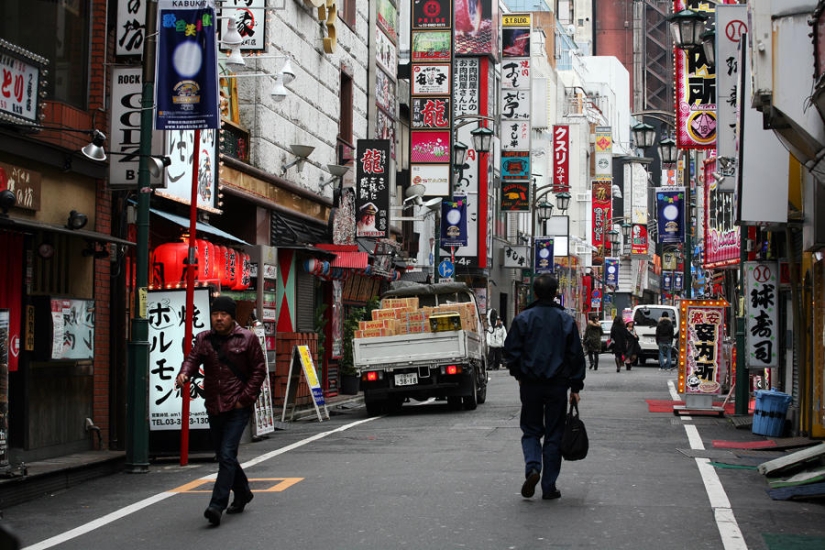
In Japan, many streets do not have names
Yes, that's right. But then how do the Japanese navigate in their cities among the nameless streets? They just have a kind of address system: instead of street names, block numbers are used.
Each block is assigned a unique number — this digit serves as an address. The spaces between the blocks — streets-remain without names. In Japan, they usually say: "I live in the second block" or "I work in the 13th block" instead of "I work on Crocodile Street" or "I live on Banana Avenue".
To many people from Western countries, such a system may seem confusing and inefficient, but in fact it is not so. It is very easy to get used to such a system, it is also easy to use it, and thus you can find the right area very quickly.
For example, if the restaurant you are looking for in Tokyo is located in the 12th block, then you need to take a map and find the block number 12 on it. And that's it — you have found where to go. In addition, it is easier to associate the block number with a place on the map and remember the route than the street names we are familiar with.
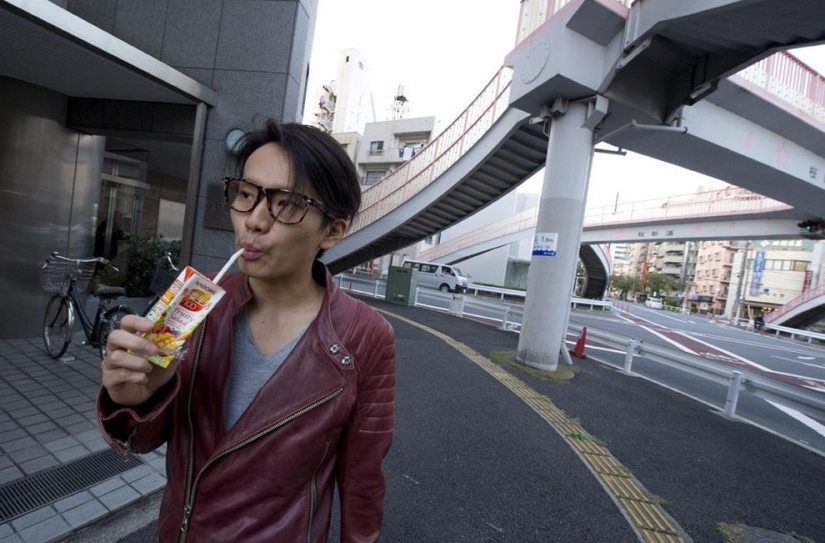
In Japan, it is normal to adopt adult men
As a rule, couples from Western countries adopt babies or young children. The reasons may be different — infertility or friendly communication, it does not matter. But in Japan, everything is completely different: for many Japanese families, especially wealthy ones, it is completely normal to adopt adult men.
Why? There are two reasons. First, an adult man will become the successor of the genus. Japan, like many other countries of the world, is a patriarchal society, and surnames are transmitted through male children. Couples who have only daughters may well consider taking an adult man into the family so that the genus does not fade away.
Secondly, an adult man will provide the family with additional financial support (if the family is not too wealthy) or help in business. This practice is quite common in rich Japanese families who own large companies.
Adult men can inherit the family business and manage it or start their own. Even if the family has other male applicants for the inheritance, but the father sees that they are not suitable for conducting business, he can accept a good leader into the family.
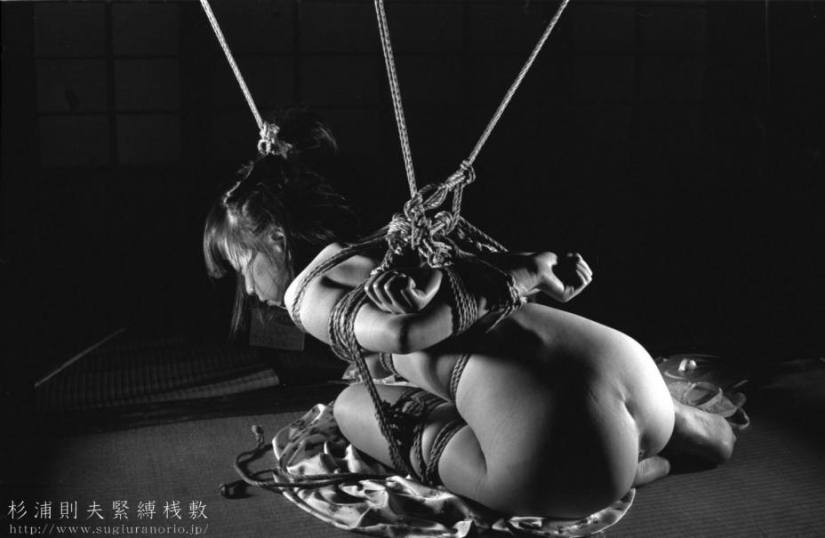
Japan is the birthplace of sexual perversions
In sex, the Japanese are very open. Some types of sexual behavior are considered taboo in the Western world, but many Japanese take it for granted and practice it. A perfect example is hentai: manga or anime, which depicts a sexual act between people, monsters or even tentacles. Hentai can be easily bought in bookstores or movie stores all over the country.
The Japanese invented not only hentai, but also netaimori-sushi, which is served on a naked female body. The Japanese also have tsubashanpu, bukakke and unagi. In the practice of tsubashanpu, a man experiences sexual pleasure from spitting on the faces of numerous girls. In bukakka, the sperm of several men falls on the face of a woman or a man. And in unagi, a live eel is placed in a woman's vagina.
The Japanese invented bondage — an important element of BDSM. There are also institutions in Japan that offer sadomasochistic services to people if they experience pleasure from pain and humiliation. Sex dolls are sold for $ 10,000 or rented for $ 100 per hour. Any sexual perversion that you can imagine is probably practiced in Japan and is considered normal.
Keywords: Asia | Japan | Facts | Outlook
Post News ArticleRecent articles

It's high time to admit that this whole hipster idea has gone too far. The concept has become so popular that even restaurants have ...

There is a perception that people only use 10% of their brain potential. But the heroes of our review, apparently, found a way to ...
Related articles

The Mongols seized in the 13th and 14th centuries, a large part of the Eurasian continent, was a force which could not to resist ...

Yes, Pets benefit our health and it is proven by science. Their very existence certainly makes us happier, but also prolongs life. ...

It is not 100% to say that tomorrow is with us nothing bad will happen, because often life throws up surprises when least expected. ...

New Year's is a time to surprise and delight loved ones not only with gifts but also with a unique presentation of the holiday ...